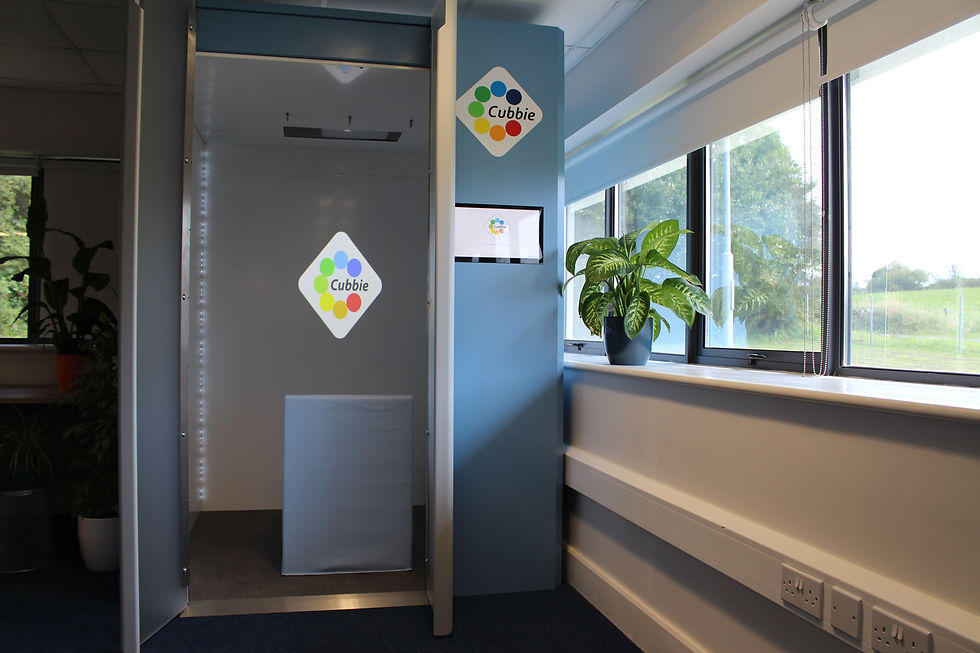Masking hides struggles—it doesn’t erase them. Let’s create spaces where people don’t have to hide to belong.
- Olivia Weilbach
- Aug 18, 2025
- 2 min read
Neurodivergence and Masking: Why Safe Spaces Matter
For many neurodivergent people—whether autistic, ADHD, dyslexic, or with other differences—navigating the world often comes with pressure to mask.
Masking is when someone hides or suppresses their natural behaviours in order to appear “neurotypical” and avoid judgment, misunderstanding, or negative consequences. While it can help people get through everyday life, the toll it takes is often invisible and deeply draining.
What Does Masking Look Like?
Masking is different for everyone, but it often involves:
Suppressing stimming (like rocking, tapping, or humming) to avoid looking “different.”
Forcing eye contact even when it feels painful or distracting.
Copying speech patterns or body language to blend in socially.
Hiding sensory overload in bright, noisy, or crowded places.
Over-preparing for conversations, work meetings, or appointments to avoid mistakes or judgment.
On the outside, someone may seem calm, engaged, and “fine.” On the inside, they may be overwhelmed, anxious, or exhausted.
Why Do People Mask?
Masking is a survival strategy. It helps people:
Avoid bullying or discrimination
Meet academic or workplace expectations
Reduce the risk of being judged as “difficult”
Gain acceptance in social situations
But masking is mentally and physically draining, and constant masking can lead to anxiety, burnout, and identity struggles.
Dos & Don’ts for Recognising and Responding to Masking
For neurotypical friends, colleagues, teachers, and professionals, it’s important to know how to respond when someone may be masking. Here’s a simple guide:
✅ Do:
Look beyond appearances – if someone seems “fine,” consider they may still be struggling.
Offer options – give choices like quieter seating, breaks, or written instructions.
Be patient – allow extra time for processing or recovery without pressure.
Check in privately – a gentle, respectful “How are you really doing?” can help.
Respect sensory needs – if someone avoids noise, bright lights, or touch, honour that.
❌ Don’t:
Assume no struggle means no support needed. Masking hides, it doesn’t erase.
Force eye contact, conversation, or participation. These demands increase stress.
Call someone out for “acting differently.” This can cause shame and make masking worse.
Dismiss requests for adjustments. Even if they seem small, they can be vital.
Expect constant resilience. Just because someone masked yesterday doesn’t mean they can sustain it today.
How Cubbie Helps Reduce the Need to Mask
At Cubbie, we believe people shouldn’t have to hide who they are in order to belong. That’s why we created a sensory-regulated space where individuals can simply be themselves.
In schools: Children can regulate without fear of judgment, reducing classroom masking.
In healthcare: Patients can decompress before appointments, reducing the need to “hold it together.”
In workplaces & public spaces: Adults can take short sensory breaks, protecting wellbeing and performance.
By meeting sensory needs proactively, Cubbie creates space for unmasking—safely, without stigma.

Why This Matters
Masking may make the world easier for others, but it makes life harder for neurodivergent people. True inclusion means recognising that no one should have to hide their authentic self to be accepted.
Cubbie is one practical step towards that vision: creating environments where individuals don’t have to change themselves to fit in—the environment flexes to support them.
👉 Together, let’s build a world where no one has to hide to belong.











Comments